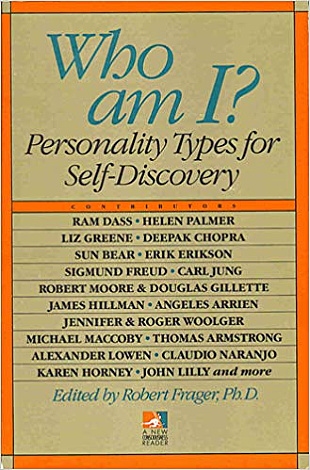"The extraordinary interest in systems like astrology, the enneagram, and the Jungian typologies reflects our intuitive understanding that there are important qualitative differences among individuals. Any theory that attempts to treat all people the same is bound to be of limited practical use. Typology theory assumes that much seemingly random variation in human behavior is not really random, but that it is the result of a few basic differences in how we function. This offers us a sense of order in chaos, design in a seemingly arbitrary universe.
"Since no single typology system has received universal acclaim as the most accurate and useful approach, I think it is safe to assume that all the widely accepted typology systems are useful for some people. At a given time, one system may provide critical insights for a particular person. Another system may have equally valuable insights for someone else or for the same person at some other time. So, rather than choose one system over all the others, this book takes the approach that all typologies are potentially useful tools. As with any tool, we have to know when and how to use it best.
"To take the notion of typology seriously, you might assume that your type is likely to lead you to prefer certain typology systems over others. For example, someone who is strongly oriented toward thinking is likely to prefer a complex, intellectually sophisticated system. Someone who is highly perceptual will prefer a system that includes detailed physical distinctions among types.
"I have found that it works best to hold each personality typology system lightly. The various types found in any given system fit certain people better than others. In other words, some people seem to be classic 'Scorpios' or Jungian 'INFPs' or enneagram 'nines.' Sometimes, a certain system seems to fit a given individual like a glove. However, even in such cases, the fit is probably better on certain days or certain years than at other times. I personally doubt that any single type description fits any single person perfectly, especially if the individual has achieved a certain degree of personal growth or inner development.
"I believe that the more we develop and the more conscious we become, the less we fit our original type. Most type theories have probably been developed by observation of the majority of people, who are not very deeply self-aware and who have experienced relatively little inner growth. As we grow psychologically or spiritually, we also grow out of our type. Some systems claim that our type is constitutionally given and unchangeable, that it is our destiny."
